Read Reviews
The Best Metal Detectors
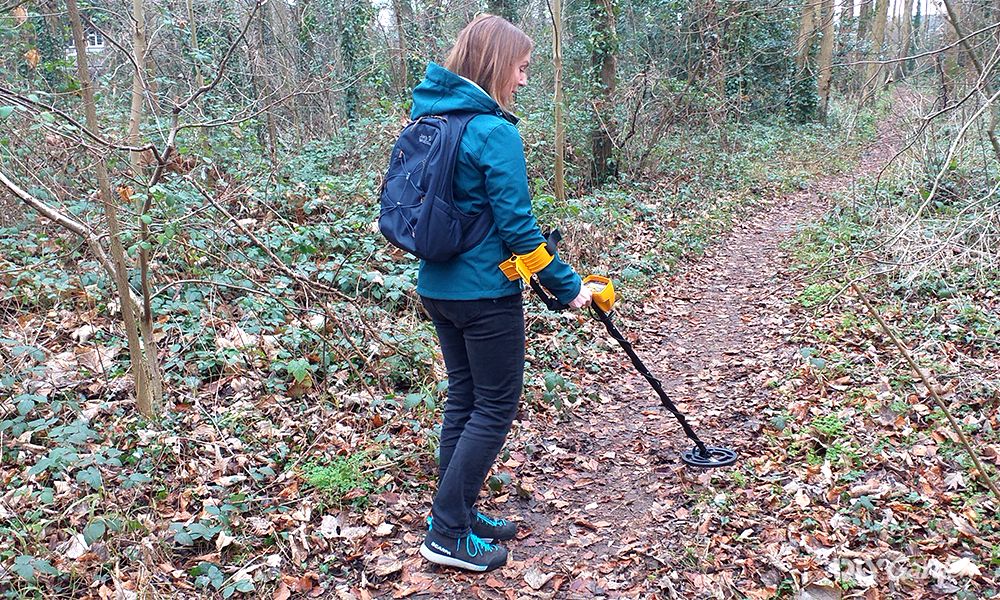
-
Best metal detector for beginners - Garrett Ace 250 Metal Detector
-
Best budget option for beginners - DR.ÖTEK MT-XR Metal Detector
-
Best high-end metal detector - Minelab Equinox 800 Metal Detector
-
Best for all terrains - Garrett AT Pro Metal Detector
-
Best lightweight beginner option - Garrett EuroACE Metal Detector
-
Best budget professional model - Hoomya TX850 Metal Detector
-
Best for ease of use & assembly - DR.ÖTEK Pinpoint Metal Detector
Metal Detector Reviews
1. Garrett Ace 250 Metal Detector
Best metal detector for beginners
- Identifies many different metals with ease at 15-20 cm depth
- Pre-programmed search modes to find the metals you want straight out the box
- Easily adjustable sensitivity and discrimination for experienced detectorists
- Lightweight, ergonomic, and it’s easy to adjust the telescopic pole
- Can be used with or without ¼ inch jack headphones
- No ground balancing so it may send false signals on mineralized soil
- There’s no backlighting on the LED screen making it hard to read on sunny days
- It’s capable of searching dry sand and freshwater, but not salty water
- Depth
- 25cm
- Frequency
- 6.5kHz
- Weight
- 1.2kg
- Search Modes
- 5
- Water Resistance
- Coil only
- Search Coil
- 6.5" x 9"
- Length
- 106cm to 130cm
- Battery
- 4 x AA (20-40hrs)
- Design
- 4.3
- Features
- 3.7
- Ability
- 3.7
- Assembly Ease
- 4.6
- Ease of Use
- 4.2
- Versatility
- 4
- Value for Money
- 4.2
If you’re after an excellent metal detector that won’t break the bank the Garrett ACE 250 is worth consideration. It’s a step up from Garrett’s entry-level ACE 150 with extra search functions and more technology.
The ACE 250 weighs 1.2 kg and is so well balanced it can be used for hours. Its weight is mostly in the control box at its handle, and the telescopic pole is easily adjustable to suit your height and ability to stretch.
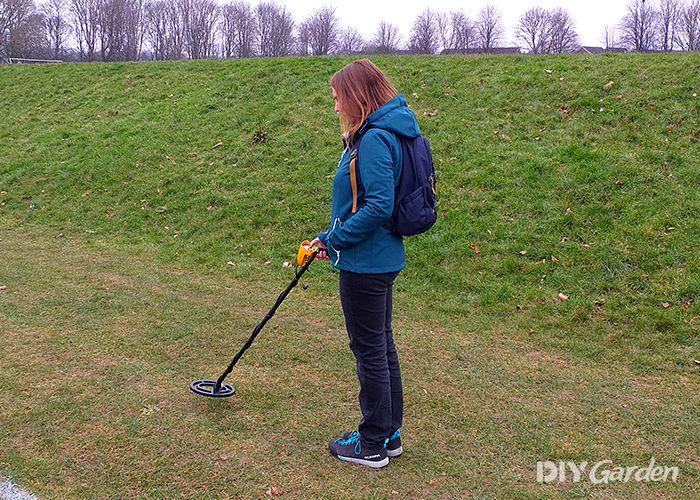
It has pre-set factory modes so you can detect straight out-of-the-box. The pre-sets are all-metal, jewellery, and relics, plus a custom function for more when you’ve got more experience under your belt. The custom function means this detector suits not only newbies but more experienced detectorists attracted by its price tag too.
Some of its more advanced features are a discrimination mode that filters out trash such as drink cans, an elimination button that stops it picking up identified targets, and sensitivity to manage mineralized soil and trashy areas – all handy tech to have under your belt when you’re serious about finding precious metal.
Also included on the LED screen are a depth indicator and a battery life indicator along with a set of icons that show what the target most likely is before starting to dig.
One of the best features is Garrett’s top-of-the-range 6.5 x 9-inch PROformance coil that’s powerful enough to detect 15-20 cm into soil and waterproof for shallow freshwater searches too. You won’t need to upgrade this coil in a rush.
A step up on the Garrett ACE 150 that justifies the extra cash is an internal pinpointer. Pinpointers narrow down the dig area and really help contain the mess, so it’s great to see it on one of Garrett’s better value detectors.
On the downside, there’s no ground balancing so the machine may send out false signals on mineralized soils, and it isn’t backlit which makes seeing the screen difficult in bright sunlight.
Overall, Garrett’s ACE 250 is an excellent starter model for adult beginners and there’s enough tech to keep more experienced detectorists on a budget happy too.
Despite the lack of ground balancing, this is a machine that will unearth metal if it’s there to be found. It’s a good quality detector from a trusted brand and definitely worth consideration.
Did you find this review helpful?
2. DR.ÖTEK MT-XR Metal Detector
Best budget option for beginners
- When disassembled can fit into a 40 L backpack
- Intuitive settings make it straight forward to set up
- Capable of detecting gold
- A good price for those who are just starting to explore the hobby
- 'Discriminate' function works well to avoid metals you don't want to find
- Does not support Bluetooth for wireless headphones
- No specific 'beach' settings so if beach metal detecting is your primary aim, this may not be the best
- Slow swings may be required so as not to miss items
- Can sometimes display false positives
- Depth
- 25cm
- Frequency
- 6.4-6.8kHz
- Weight
- 1.8kg
- Search Modes
- 5
- Water Resistance
- Coil only
- Search Coil
- 9.8"
- Length
- 141cm
- Battery
- 9V Alkaline
- Design
- 4
- Features
- 3.9
- Ability
- 3.8
- Assembly Ease
- 4.6
- Ease of Use
- 4.7
- Versatility
- 4
- Value for Money
- 4.4
If you’re after a good-value purchase, this excellent find will help you in your search for buried treasure (at a reasonable price!). The Dr.ÖTEK MT-XR Metal Detector is one of the best value metal detectors out there. And, despite its lower price, it’s nice to see that the manufacturers haven’t scrimped on quality.
A particularly useful feature is the memory mode, where you can ‘show’ the MT-XR detector a certain type of metal, a silver ring, for example, and it will only search for that type of metal composition. This can help limit time wasted uncovering items that aren’t of interest to you.
With a 9.8” waterproof coil, this metal detector can be used in shallow water and is capable of locating coins up to 25 cm deep on dry land. Plus, the backlit LCD screen makes it easy to see what settings you’re using and use the metal detector after dusk; even some of the more expensive models don’t feature a backlit screen which can really hinder evening-time metal detecting.
At 1.8 kg the MT-XR doesn’t feel too heavy, and children can use it as well without difficulty. It’s a good choice for taking on camping trips and outdoor adventures because all the family can get enjoyment from this fun tool.
It’s also one of the best options for those wanting to get a feel for the hobby, and head out straight away to start finding different objects, without having to make a large investment.
Whilst it doesn’t have a rechargeable battery, it is powered by a single 9 V battery and one comes included. This does reduce the number of spares you need to carry around if you’re planning to be using this metal detector across several days.
One more thing to bear in mind is that this is not on the same level as the more expensive, professional machines – it’s suitable for those who are interested in starting this fun hobby, but it can give false readings sometimes. The MT-XR is a mid-to-low range metal detector with better features than the very cheapest models available.
Did you find this review helpful?
3. Minelab Equinox 800 Metal Detector
Best high-end metal detector
- Rechargeable batteries save money and can also be charged by portable USB charger
- Included wireless headphones are comfortable and stop extra wire getting in the way
- Very lightweight means you can use for slightly longer without getting tired
- Accuracy is good even on wet sand at the beach
- Good depth detection - picks up things which are buried deep with surprising accuracy
- The shaft is too long for standard backpack storage, needs to be disassembled or a telescopic shaft can be bought separately
- Quite a steep learning curve if you are used to other detectors - but some easier pre-sets can be used
- Does not automatically come with instruction manual - has to be downloaded or specifically requested
- The shaft joins can be a little unstable and need to be tightened well
- Depth
- 38cm
- Frequency
- 20/40 kHz
- Weight
- 1.34kg
- Search Modes
- 4
- Water Resistance
- 3m
- Search Coil
- 11"
- Length
- 144cm
- Battery
- Lithium-Ion (12hrs)
- Design
- 4.6
- Features
- 4.6
- Ability
- 4.7
- Assembly Ease
- 4.4
- Ease of Use
- 4
- Versatility
- 4.6
- Value for Money
- 4.1
For detecting objects with a surprising degree of accuracy at impressive depths, the Minelab Equinox 800 Metal Detector is a popular model amongst amateurs and experts alike.
Able to work across multiple frequencies, this metal detector has many more adjustable settings to choose from than a single-frequency metal detector. However, if that’s all starting to sound a bit complicated, you can be safe in the knowledge that the default pre-sets also work well right out the box.
Using the different ID profiles provided, this metal detector can be optimized to search for specific items on various terrain; for example, it has a beach mode and can be tasked to find objects of high or mid conductivity as well as gold.
With a rechargeable lithium-ion battery, money doesn’t get wasted on buying spares. Plus, there’s no need to carry batteries around with you. The Equinox 800’s battery can last for around 12 hours and is recharged using a USB.
Suitable for use in the rain, the Equinox 800 is waterproof up to 3 m. It can also be used to search in shallow fresh or salt water, with the possibility of working marginally better than the Garrett AT Pro Metal Detector around salt water thanks to the multi-frequency technology.
Weighing 1.34 kg, with a LCD screen that is backlit and can be read even in the dark, the Equinox 800 remains comfortable and user friendly. Its biggest shortcoming is its non-retractable shaft which can make transportation more difficult. This can be taken apart into three pieces, or replaced by separately purchasing an additional telescopic shaft.
Overall, I consider this to be the best metal detector for the UK market if you’re looking for a higher-end model to start you off.
Did you find this review helpful?
4. Garrett AT Pro Metal Detector
Best for all terrains
- Effectively detects gold in the form of gold jewellery/coins etc.
- Easy to use even for those new to metal detecting
- Discriminates well between 'junk' and worthwhile finds, saving you time
- Relatively quick to get used to despite being quite a technical machine: takes 10 - 50 hours to get the hang of
- Light enough to use comfortably - may have to switch arms every 30 minutes or so
- The screen may be a little small - if you wear reading glasses you may need them
- When metal detecting on the beach/around salt water it may be difficult to find the right settings
- The batteries are not rechargeable.
- It may take some time to adapt and get used to the different tones
- The screen is not backlit which makes it harder to read when it starts getting dark
- Depth
- 25cm
- Frequency
- 15kHz
- Weight
- 1.37kg
- Search Modes
- 7
- Water Resistance
- 3m
- Search Coil
- 8.5" x 11"
- Length
- 106cm to 130cm
- Battery
- 4 x AA (20-40hrs)
- Design
- 4.4
- Features
- 4.5
- Ability
- 4.4
- Assembly Ease
- 4.7
- Ease of Use
- 4.7
- Versatility
- 4.6
- Value for Money
- 4
No matter where you’re hoping to go searching, this Garrett AT Pro Metal Detector is one of the best metal detectors around. With ‘AT’ standing for ‘all terrain’, it can identify metal and assist in the discovery of great finds whether you’re in the garden, at the beach, or searching in shallow water.
Powerful enough to detect gold, the AT Pro uses Digital Target ID, ranging from 0 to 99, to estimate how potentially worthwhile an object is to dig up. When you locate an object, a number will be displayed on the screen. The higher the number, the more likely it is that an object is worth excavating. All this before even taking out your trowel!
With a standard mode for beginners, and a pro mode for when you become more experienced, you can head out as soon as you’ve inserted the batteries yet continue to improve your experience as you learn. It can take a little while to get used to the different sounds and what they mean, but many users find that after 10 – 50 hours they’ve got a much better understanding of how to get the most out of this metal detector.
Unlike some other models, this Garrett metal detector also has an iron mode; this is useful when working in areas with high quantities of iron because it helps discern between worthless iron (more likely to be nails and invaluable objects) and potentially-valuable finds.
All in all, this is a beginner-friendly metal detector which is also suitable for the avid-detectorist. Working well to limit the amount of ‘junk’ metal you dig up, it’s also waterproof up to 3 m and effective around fresh water.
One thing to be aware of: you may find that when using it at the beach, especially in the surf, it takes a bit more time to work out the best setting and discern between the different sounds because of the minerals in the water.
Did you find this review helpful?
5. Garrett EuroACE Metal Detector
Best lightweight beginner option
- Can be taken apart easily to fit into a rucksack
- Well adapted to UK conditions whereas some other detectors are more focused towards the US
- A decent budget option offering good value for the features included
- Achieves good depth in dry soil - up to 25 cm
- Does not always work very well on wet sand, especially if there is a lot of mineralisation
- The battery is not rechargeable - it requires 4 x AA
- Does not discern well between a junk metal object and a valuable find
- On wet ground in general it may not always give reliable signals
- No bluetooth connectivity for wireless headphones
- Depth
- 25cm
- Frequency
- 8.25kHz
- Weight
- 1.2kg
- Search Modes
- 5
- Water Resistance
- Coil only
- Search Coil
- 8.5" x 11"
- Length
- 113cm
- Battery
- 4 x AA (20-40hrs)
- Design
- 4.3
- Features
- 4
- Ability
- 4
- Assembly Ease
- 4.6
- Ease of Use
- 4.2
- Versatility
- 4.4
- Value for Money
- 4.4
If you’re looking for an entry-level detector that will help you explore metal detecting as a new hobby without breaking the bank, this Garrett EuroACE is the best metal detector for beginners. It doesn’t have the steep price tag of more intricate models, making it a perfect ‘first’ metal detector, and it’s easy to carry.
The Garrett EuroACE is simple to set up and use; you’ll be able to get started with your new hobby quickly, avoiding too much time-consuming research and preparation.
Operating at a frequency of 8.25 kHz, ideal for detecting small objects, this unit has been specifically designed for use in European conditions. Whereas some other metal detectors are designed with US terrain in mind, the EuroACE’s set up is better adapted to easy use in the UK.
With a weight of 1.2 kg, it’s a lightweight metal detector, and suited to prolonged use. It can even be taken apart to be carried in a rucksack too. It comes with a rain cover, coil cover and headphones, meaning beginners don’t need to source kit from different places.
Whilst this may not have all the fancy settings of the Equinox 800 or Garrett AT Pro, it also doesn’t have such a steep learning curve. So, if you’re after something which still offers some scope for improving your skills, but don’t want to over-complicate matters, the EuroACE could be a good way to go.
Of course, it does have its limitations, and its more difficult to get an accurate reading on wet sand with this model, but it’s also several hundred pounds cheaper than metal detectors which do this more accurately. Plus, in terms of readings on dry land, the Garrett EuroACE has a lot to offer.
Did you find this review helpful?
6. Hoomya TX850 Metal Detector[ SAVE 8% ]
Best budget professional model
- It is capable of detecting gold even at around 15 cm deep
- Finding iron is very simple from first use
- Easy to start using straight out of the box if hunting for all metals
- Can be made very compact and easy to carry in the bag provided
- Works relatively well even on wet sand
- Heavier than other models and can get uncomfortable after an hour of use
- Slightly more complicated to get used to than the very basic models, but instruction manual is thorough
- 9 V battery does not come included
- Can give false signals in wet grass/areas with high mineralisation
- The included headphones are not of great quality, but you can use your own
- Depth
- 25cm
- Frequency
- 19kHz
- Weight
- 2.6kg
- Search Modes
- 2
- Water Resistance
- Coil only
- Search Coil
- 11"
- Length
- 106cm to 137cm
- Battery
- 9V Alkaline
- Design
- 4
- Features
- 4.4
- Ability
- 4.4
- Assembly Ease
- 4.5
- Ease of Use
- 4.3
- Versatility
- 4.4
- Value for Money
- 4
For a high-quality, entry-level metal detector, the HOOMYA TX850 Metal Detector is accurate and easy to use.
It can be used straight out the box (as long as you have a 9 V battery ready to go – the battery doesn’t come included), and by using intuition alone you’ll be able to work out how to locate metal like iron. If you want to search for more valuable objects, it takes a bit of getting used to, but the manual is clear and well structured, making the HOOMYA metal detector easy to understand.
It has an 11” coil which is waterproof, allowing metal detecting to take place in shallow water and damp undergrowth; however, the likelihood of getting some false readings does increase in these areas.
As with most other metal detectors, this model can intelligently distinguish between metal types, removing low-value metals from its search if calibrated to do so. This feature saves time when it comes to detecting and excavating because it becomes clear when something is worth digging up.
With a relatively accurate pinpoint feature, object location is also easy to specify. By pressing the ‘pinpoint’ button, you can narrow down the exact position of the find.
In terms of comfort and portability, this metal detector is easy to carry around, coming with its own carry bag to aid transportation. The shaft can be adjusted, not only to help with carrying but also to make it suitable for users of different heights.
It does weigh 2.6 kg, which is over 1 kg heavier than some other models featured on this list, but it’s still quite comfortable to use; there is an arm strap and padded handle to improve comfort and stability.
Did you find this review helpful?
7. DR.ÖTEK Pinpoint Metal Detector
Best for ease of use & assembly
- Easy to set up and get going within minutes of arrival!
- Indicates the area where metal has been detected with precision
- Just one button makes this very easy to operate
- Suitable for both children and adults at beginner level
- Suitably priced for the detector that you receive
- No strap on the handle like a lot of other models - tends to help with stability
- Not the most suitable for finding deeply buried items
- If you hit a branch or rock, the detector may get thrown off for a few minutes
- Batteries don't come included unlike other models
- Depth
- 18cm
- Frequency
- Not listed
- Weight
- 1.9kg
- Search Modes
- 3
- Water Resistance
- Coil only
- Search Coil
- 8"
- Length
- 93cm to 120cm
- Battery
- 6 x AA
- Design
- 4
- Features
- 3.5
- Ability
- 3.7
- Assembly Ease
- 4.8
- Ease of Use
- 4.8
- Versatility
- 4
- Value for Money
- 4.7
If you’re looking for an introductory metal detector which is suitable for children (of around 10 years +), this DR.ÖTEK Pinpoint Metal Detector is a great tool for igniting interest in the hobby.
Like a lot of metal detectors, this model is still able to discern between different types of metal, meaning you don’t need to waste as much time digging up iron nails or bottle caps (if you don’t want to!). You’ll be able to get used to the different pitch sounds that various metals make, to know which you’re picking up with the metal detector.
Coming with a free folding spade, this metal detector is splash-proof, making it suitable for use at the beach or by the river. Bear in mind that it’s not waterproof though, so the coil shouldn’t be submerged.
With just three buttons on its control unit, the Dr.OTEK Metal Detector keeps things pleasantly simple – there is a power button, sensitivity button, and pinpoint button. The pinpoint button hones in on the exact location of the find, making it easier to locate when digging.
It requires 6 x AA batteries which is more than other disposable-battery powered metal detectors featured on this list – they tend to only need 4 x AA. However, with only basic, occasional use, these batteries should last for a long time. They don’t come included, so if you want to use this metal detector straight away you should make sure to buy some separately.
Did you find this review helpful?
Product Tester
To find the best metal detector to suit your needs, I conducted an in-depth analysis of some of the best metal detectors out there, including those most suitable for beginners and models high-end enough for adept detectorists. I assessed each model on 7 key features:
- Design: When testing each metal detector’s design, I first focused on the screen. If they had an LED (rather than an LCD) screen, which was clear and easy to understand, these models were given the best ranking. I checked whether the screens were backlit, as this made it easier to use in a range of environments, from full sun to limited lighting. Waterproof models that could detect metal at 3 metres depths (in water) were given better marks on their design as this increased their usability for the average buyer.
- Features: Features I was particularly looking out for were a discrimination mode, elimination button, good sensitivity, and an internal pinpointer to narrow down your dig area. Models with all these features were rated higher, as this made the metal detector far more straightforward to use. Models with ground balancing to help prevent false signals on mineralised soils and memory mode were given the best ratings, as were those that had Digital Target ID and Bluetooth connection capability.
- Ability: Metal detectors that could detect all metals, including gold, were given the best ratings. Those with an iron mode were also given a good rating, as this improved how the detector functioned in areas with high iron quantities. I tested the effectiveness of each model’s Digital Target ID (if they had it) and their detection accuracy, and models that could detect each metal successfully more often were given better marks.
- Assembly Ease: To assess assembly ease, I first checked the instruction manual. I checked whether each model had one, for starters, and if they did, how easy the instructions were to understand. When assembling each model, I considered how easy it was to put together and how well the pieces fit or whether they needed force or skill. I timed how long it took to put each metal detector together – any models that took 30 minutes or less were given better marks, as I deemed these more suitable for the average user, including a novice.
- Ease of Use: Well-balanced and lightweight metal detectors weighing less than 1.5 kg were rated the best as these were easiest to use for long periods. Models with an adjustable telescopic pole were most suitable for people of differing heights, so these were given higher ratings, too. Metal detectors that had a single, long-lasting lithium-ion rechargeable battery were rated higher as you don’t have to carry around additional batteries for these, making them easier to use and transport.
- Versatility: For a metal detector to be versatile, it needed to be accessible for beginners and accustomed detectorists alike. So, models with preset factory modes as well as custom mode settings were rated higher. Detectors that worked on multiple frequencies rather than just one were rated higher, as these offered more adjustable settings. A 9-inch PROformance coil was the best of the best for powerful detecting, allowing you to detect more metals, so these were given higher marks.
- Value for Money: To assess value for money, I considered each metal detector on the previous 6 key factors and compared this with their price point. Models that offered versatility, clever designs, and handy features for a competitive price were given the best ratings.
Compare Product Features
Use the dropdown to sort the table by the feature you want to see.
Garrett Ace 250 Metal Detector
- 4.1
- 25cm
- 6.5kHz
- 1.2kg
- 5
- Coil only
- 6.5" x 9"
- 106cm to 130cm
- 4 x AA (20-40hrs)
DR.ÖTEK MT-XR Metal Detector
- 4.2
- 25cm
- 6.4-6.8kHz
- 1.8kg
- 5
- Coil only
- 9.8"
- 141cm
- 9V Alkaline
Minelab Equinox 800 Metal Detector
- 4.4
- 38cm
- 20/40 kHz
- 1.34kg
- 4
- 3m
- 11"
- 144cm
- Lithium-Ion (12hrs)
Garrett AT Pro Metal Detector
- 4.5
- 25cm
- 15kHz
- 1.37kg
- 7
- 3m
- 8.5" x 11"
- 106cm to 130cm
- 4 x AA (20-40hrs)
Garrett EuroACE Metal Detector
- 4.3
- 25cm
- 8.25kHz
- 1.2kg
- 5
- Coil only
- 8.5" x 11"
- 113cm
- 4 x AA (20-40hrs)
Hoomya TX850 Metal Detector
- 4.3
- 25cm
- 19kHz
- 2.6kg
- 2
- Coil only
- 11"
- 106cm to 137cm
- 9V Alkaline
DR.ÖTEK Pinpoint Metal Detector
- 4.2
- 18cm
- Not listed
- 1.9kg
- 3
- Coil only
- 8"
- 93cm to 120cm
- 6 x AA
How to Choose The Best Metal Detector
Metal detectors have come a long way in recent years, now possessing improved features like increased sensitivity and the ability to discern between different types of metals.
With all these new functions in mind, it’s worth doing a bit of research before committing to a purchase – just to make sure you’re getting the most for your money! Hopefully my in-depth metal detector reviews above have helped you!
If you’re after activities to do with your children, we’ve also got a separate page with the best metal detectors for kids. Metal detecting can make an excellent family day out!
The following tips will help you find the best metal detector for you on the UK market:
What Treasures are You Hunting?
You’d be forgiven for thinking that any metal detector will detect any type of metal. The clue’s in the name, right? Unfortunately it’s not quite that simple, but to make things clearer we’ll break down the different types of metal detectors here:
Searching for gold nuggets, gold flakes, coins and jewellery?
In this case you’ll need to look for a more expensive unit, like the Garrett AT Pro Metal Detector. This metal detector has gold-finding capabilities which not all possess. The reason that gold detecting metal detectors are more expensive is because they require more power.
Plus, they need to work at a higher frequency. Gold is not a very conductive substance, and is generally only found in small amounts, requiring metal detectors to be powerful and suitably adapted. These units will also pick up on other metals.
The best metal detectors are able to determine how well the items conduct electrical current and this allows them to tell the difference between coins and foil.
Searching for more general items – coins, jewellery and relics?
The entry-level metal detectors are built for all-purpose metal detecting. If you’re not planning on prospecting for gold then an all-purpose entry-level machine is all you need to get started. These metal detectors are powerful enough to pick up on a variety of more common metals and they’re much more conservatively priced.
READ NEXT: DR OTEK Metal Detecting Folding Shovel Review
Benefits of a Metal Detector With ‘Iron Content Analysis’
Many metal detectors will determine how much iron is present in a potential find, even whilst it’s still in the ground. This is a useful feature to look out for, since items with high iron content are more likely to be nails than ancient coins. It can save you a lot of time in your search if you don’t have to excavate every iron nail you find.
Some metal detectors also have settings which allow you to bypass being alerted to the presence of iron altogether. If you’re metal detecting in an area which has high-iron-content ground, you may wish to only be informed if a different type of metal shows up.
Check if it’s a Waterproof Metal Detector
The UK isn’t best known for its temperate year-round climate. As a result, it’s a good idea to make sure that the metal detector your buying has some level of water-proofing.
Let’s face it, you’ll likely be using it on a rainy day at some point, and it would be very frustrating if your machine wasn’t up to the task!
Look out for information about whether the coil of the metal detector is waterproof. If it’s not, you might be better off looking for a different model.
If you’re hoping to use your metal detector at the beach, or on river banks, an assurance of waterproofing is necessary. You never know when you might get caught out by the tide or splashed! Some units offer protection up to depths of 3 m, perfect for if you’re more serious about treasure-hunting and don’t want to be thwarted by terrain.
Working to Your Budget
Obviously, your choice will depend on how seriously you are taking metal detecting and your available budget. The more expensive metal detectors have more features to enable you to find more things, but they may be too costly for someone who is not sure how much they will use the machine.
A simpler machine may be more suitable if you just want to occasionally indulge in this fun hobby, are just starting out, or want a basic machine without all the bells and whistles.
Metal Detector FAQs
You should always have permission from the landowner before using your metal detector. You should also be careful not to damage archaeological sites. It is recommended that you acquire public liability insurance before you begin metal detecting.
Many metal detectors have a built-in pin pointer function. You can switch the unit to pinpoint mode to locate the exact location of the item. However, if yours doesn’t have this feature you might want to consider buying a separate one.
The pin pointer is a hand-held metal detector. You can use it to locate the exact location of a find by, for example, putting it into a dug hole to get a more accurate reading. This saves time and effort as you only dig in the precise location of the object.
Headphones are not entirely necessary because metal detectors do have built in speakers; however, using headphones can improve accuracy. Headphones help you to hear the different tones and improve your ability to notice a significant target. This is especially true in environments where there may be a lot of background noise, such as on the beach.
You can buy headphones from as little as £12, however, you might want to spend a little more for some quality, long-lasting headphones which will cancel out background noise.
In the UK we have an excellent system whereby valuable finds are recorded so that they can be enjoyed by the general public. This is called the Portable Antiquities Scheme and is run by the British Museum. A local-finds liaison officer records information about the items, and then the details are put online for everyone to study and enjoy.
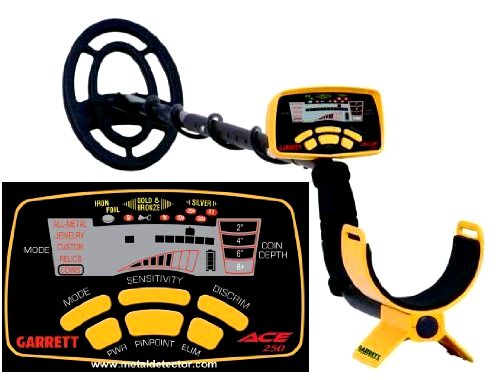
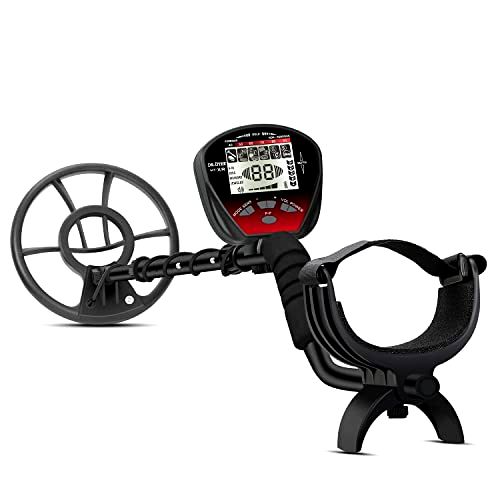
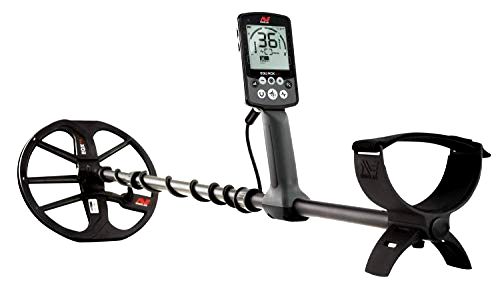
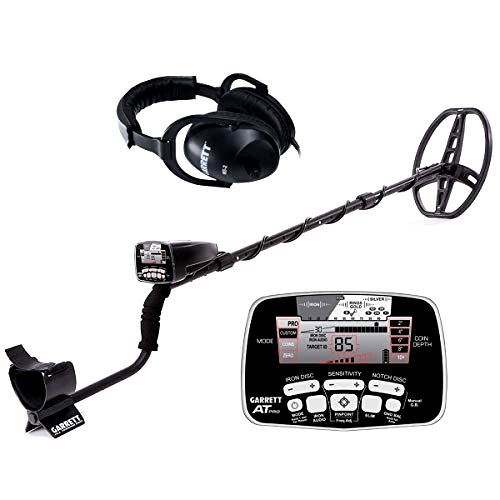
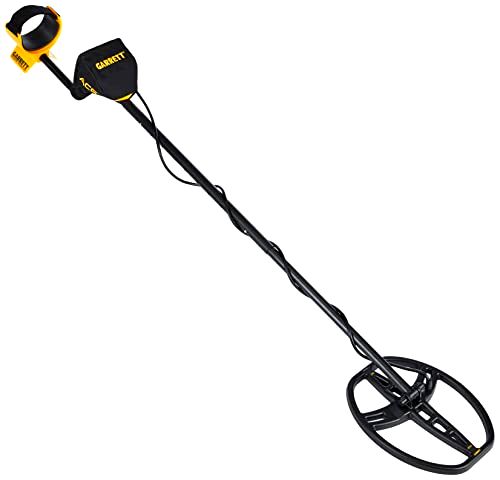
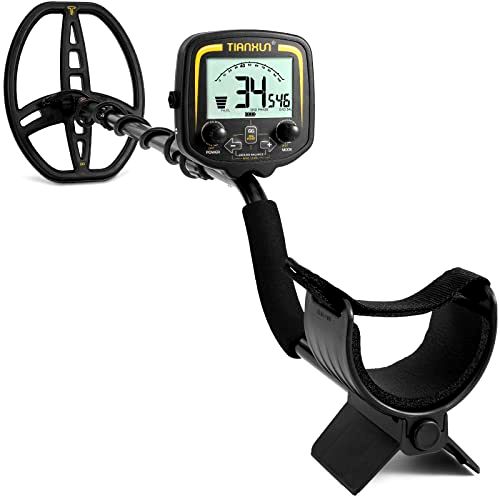
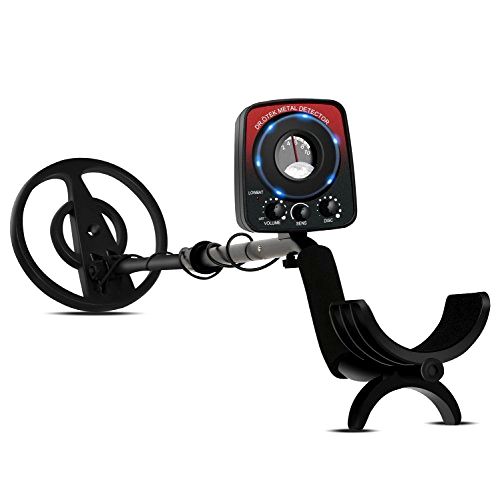

Share